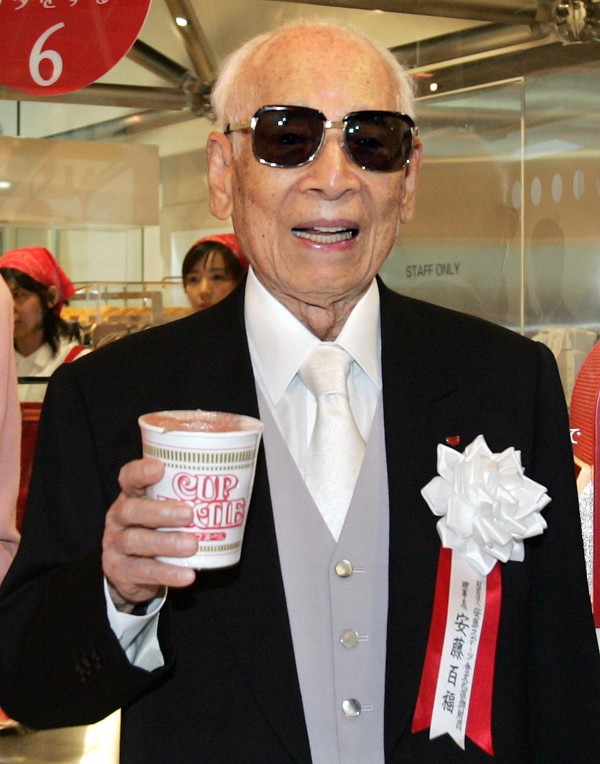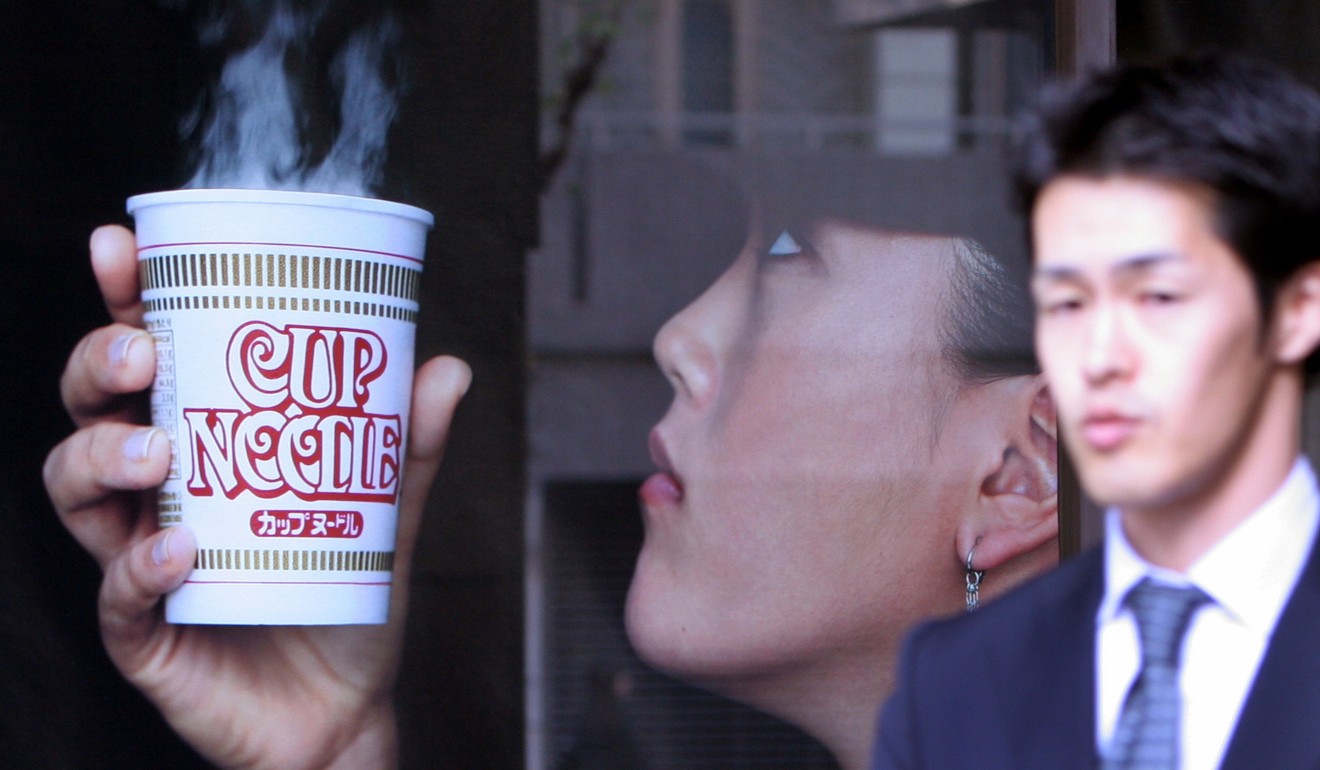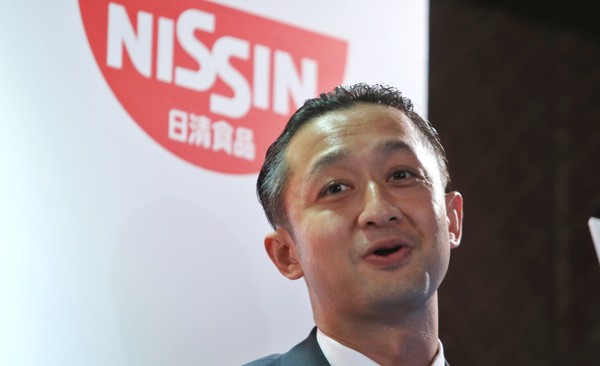
Japanese creator of the instant ramen eyes Hong Kong IPO, and promises hefty investment to spice up its products
China’s demand for low-priced instant noodles has plummeted – but the mighty Nissin Foods promises a shift to quality, with higher-priced ‘premium’ items
Japanese instant-noodle legend Nissin Foods Holdings – the maker of Cup Noodles and owner of big selling and well-known brands such as Demae Itcho – plans to spin off its China and Hong Kong business in an initial public offering (IPO) next month, expected to be worth up to HK$1.13 billion (US$145 million).
Pre-packed dried “ramen”, or Japanese-style instant noodles, have been staples for young and old for years across Asia, and the mainland still accounts for just over half of the offshoot’s revenues (53 per cent), according to the IPO document.
But as the country has become more affluent and health conscious, consumption patterns have changed, and the average instant noodle appears to be falling quickly out of favour.
Nissin promised on Tuesday, however, the new spin off will use the proceeds to upgrade the quality of its products, through improved manufacturing facilities, an expanded distribution and sales network, as well as establishing potential strategic partnerships and seeking mainland mergers and acquisitions.
The key ingredient to its new business’s direction, insisted Kiyotaka Ando – the grandson of the late Momofuku Ando, often referred simply as the “Father of Instant Noodles” who founded Nissin Foods Holdings in 1948 – will be more quality products.

“Demand is shifting towards premium,” Ando added. “We will be focused on selling premium instant noodles – a segment that just keeps on growing.”
Nissin Foods is still Hong Kong’s largest instant-noodle supplier with a 65 per cent market share in terms of retail sales value, while it ranks a lowly fifth in the mainland, with just 2.6 per cent market share.
In China’s premium ramen market, however, it had a more commanding 20 per cent market share last year, in terms of retail sales value, second only to Tingyi, one of the country’s major food and drinks companies, which holds a 39 per cent of the premium noodle sector.
Nissin Foods Company is expected to debut on Hong Kong’s main board on December 11. The offering of 268.58 million shares has been given an indicative price range of HK$3.45 to HK$4.21.
Demand is shifting towards premium. We will be focused on selling premium instant noodles – a segment that just keeps on growing
Kiyotaka Ando said the company had chosen to list in Hong Kong, itself in the midst of IPO fever, as it wants to increase its brand awareness and expand the number of quality products it offers in China – the world’s largest instant-noodle market.
Nissin Foods Holdings’s first product in 1948 was chicken-flavoured, pre-cooked instant ramen.
Momofuku’s revolutionary idea had a practical intention – to provide war-ravaged Japan with affordable food.
But the product rapidly gained popularity, and by March 2016 the company claims cumulative sales of the Cup Noodles brand alone, worldwide, were 40 billion servings – which had doubled since 2011.
“Premium ramen” in China is usually priced at around 5 yuan (US75 cents) or HK$6 per bowl, or package, but across China the question facing Ando will be, with low-priced products accounting for around 80 per cent of total instant-noodle sales, ‘will Chinese buyers be prepared to spend that little bit extra for quality?’

Ando clearly thinks ‘yes’, and the flotation will provide the funds he needs to launch a marketing blitz which will get his message across to millions of instant-noodle lovers.
China’s total demand for cheaper instant products has declined sharply in recent years, with consumers now willing to fork out more on quick, easy, and healthier meals, often ordered online.
Last year, the country’s consumption of standard instant noodles tumbled 17 per cent to 38.5 billion servings from 46.2 billion servings in 2013, according to statistics from the World Instant Noodles Association.
But as Ando points out, premium ramen brand demand keeps growing, with the most recent figures showing compound annual growth rate of 11.2 per cent from 2012 to 2017.

He is confident the premium segment can continue growing around that double-digit rate over the next few years, at least through to 2021.
Nissin Foods’ products, of course, have been on Hong Kong store shelves for years, with customer support in the city for its flagship “Demae Itcho” noodles its “biggest asset”, said Ando.
“Once Hong Kong consumers accept our new quality products, we can launch them further on the mainland,” he added.
“We will be targeting younger consumers, who we believe have similar tastes in Hong Kong and the mainland.”
This has already been a busy year for the Japanese firm. In preparation of its mega move upmarket, two new factories have already started production in Hong Kong, and in Zhejiang province, China.
Ando said it has plans to expand further into the northern and western regions of China, which combined currently represent just 7 per cent of the company’s mainland sales.
The retail offering will kick off on Wednesday and end on December 4.
The company has introduced eight cornerstone investors, who have agreed to invest between HK$250 million to HK$282 million. They include Itochu, Kagome, Matsui Miso, Mitsubishi Corp, Snow Lake China Master Fund, Snow Lake China Master Long Fund, Yau Shing Hong Provisions, and Yeo Hiap Seng. Ten per cent of the shares will be open to public sale.
For the first six months of 2017, Nissin Foods suffered a decline of more than 10 per cent in net profit, although revenues increased slightly, by 1.6 per cent to HK$1.34 billion.
The drop was “primarily due to the increase in the cost of sales”, the IPO document said, including the cost of raw materials such as palm oil.

